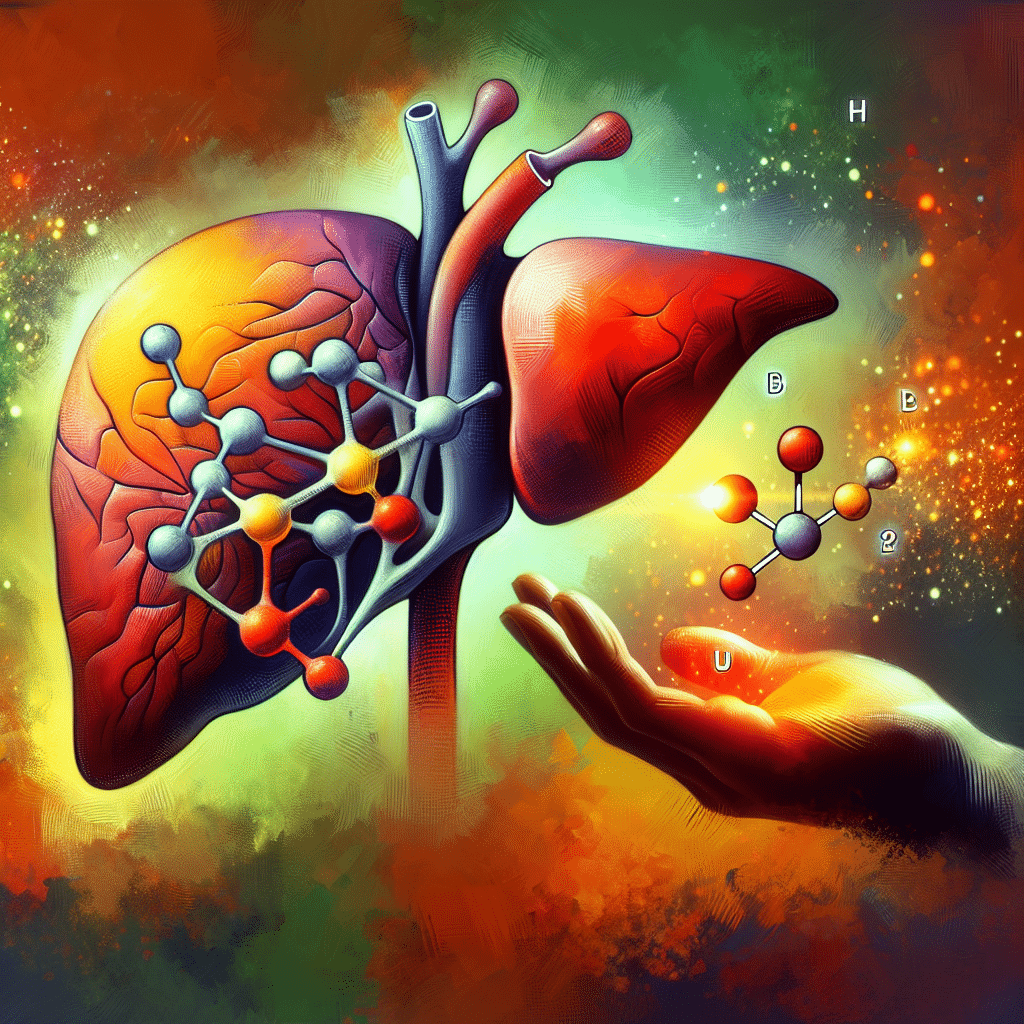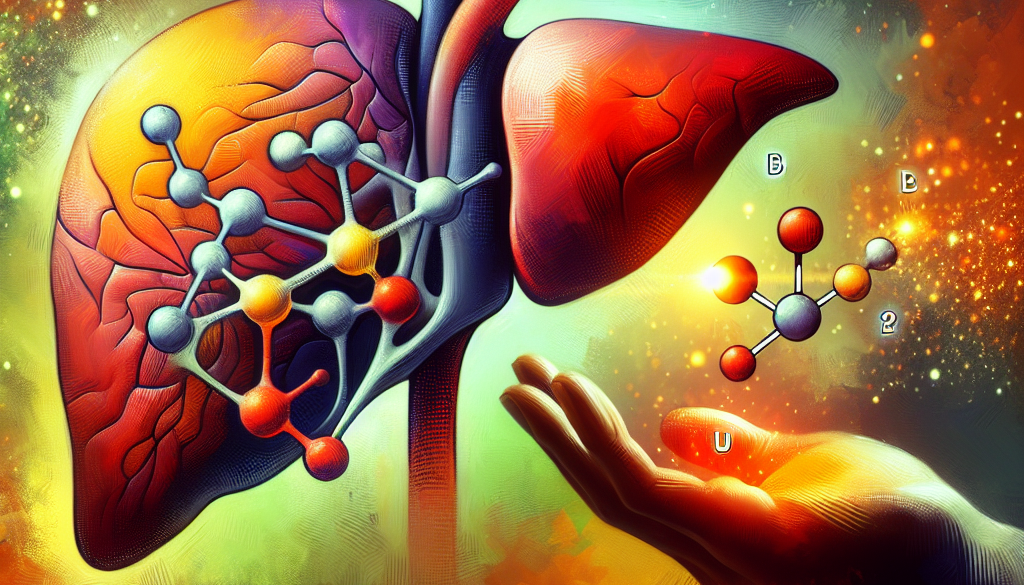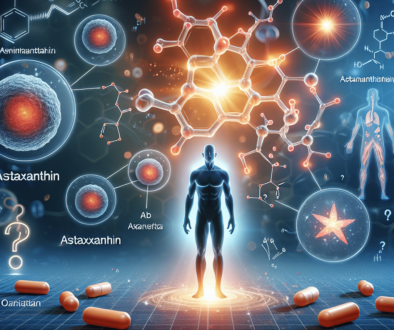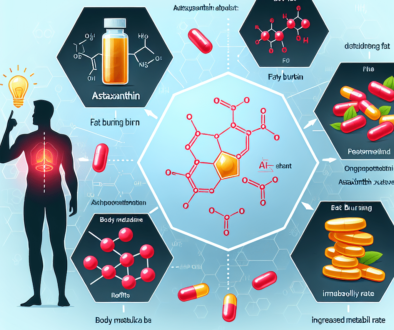Can astaxanthin damage liver?
-
Table of Contents
- Astaxanthin and Liver Health: Exploring the Connection
- Understanding Astaxanthin
- The Role of Astaxanthin in Liver Health
- Research on Astaxanthin and Liver Safety
- Potential Risks and Side Effects
- Guidelines for Safe Astaxanthin Supplementation
- Conclusion: Balancing Benefits and Risks
- Enhance Your Health with ETprotein’s Premium Protein Products
Astaxanthin and Liver Health: Exploring the Connection

Astaxanthin, a naturally occurring carotenoid found in certain marine plants and animals, has gained popularity as a potent antioxidant supplement. Known for its vibrant red-pink color, astaxanthin is commonly associated with health benefits, including improved skin health, enhanced athletic performance, and potential protective effects against certain diseases. However, with the rise in its usage, concerns about its safety profile, particularly its impact on liver health, have emerged. This article delves into the current research to address the question: Can astaxanthin damage the liver?
Understanding Astaxanthin
Astaxanthin is a member of the carotenoid family, substances that are synthesized by plants and microorganisms and are responsible for the bright colors of many fruits and vegetables. Unlike some other carotenoids, astaxanthin does not convert to vitamin A in the human body, which prevents the risk of vitamin A toxicity associated with high intake of other carotenoids like beta-carotene.
The Role of Astaxanthin in Liver Health
The liver is a vital organ responsible for numerous functions, including detoxification, protein synthesis, and the production of biochemicals necessary for digestion. Given its central role in detoxification, the liver is particularly susceptible to damage from oxidative stress and inflammation.
Astaxanthin’s antioxidant properties suggest that it could potentially offer protective benefits for the liver. Antioxidants help neutralize free radicals, which are unstable molecules that can cause cellular damage. By combating oxidative stress, astaxanthin could theoretically support liver health and prevent liver disease.
Research on Astaxanthin and Liver Safety
Several studies have investigated the effects of astaxanthin on the liver, with most research indicating positive outcomes. For instance, animal studies have shown that astaxanthin can reduce liver inflammation and protect against liver fibrosis. Additionally, astaxanthin has been found to improve lipid metabolism and reduce the risk of non-alcoholic fatty liver disease (NAFLD) in animal models.
Human studies, although limited, have also suggested potential benefits. A study published in the “Journal of Clinical Biochemistry and Nutrition” found that astaxanthin supplementation improved liver enzyme levels and lipid profiles in patients with NAFLD.
Potential Risks and Side Effects
Despite the promising research, there is still a question of whether high doses of astaxanthin could be harmful to the liver. Most clinical trials have used doses ranging from 4 to 40 mg per day, which have been well-tolerated with few reported side effects. However, as with any supplement, there is a potential for toxicity at very high doses.
There have been isolated reports of adverse effects associated with astaxanthin supplementation, including abdominal pain and increased liver enzyme levels, which could indicate liver stress or damage. However, these cases are rare and often involve other confounding factors, such as pre-existing liver conditions or the use of other supplements and medications.
Guidelines for Safe Astaxanthin Supplementation
- Consult with a healthcare provider before starting any new supplement, especially if you have a pre-existing liver condition or are taking medications that affect liver function.
- Stick to the recommended dosage on supplement labels or as advised by a healthcare professional.
- Choose high-quality astaxanthin supplements from reputable manufacturers to ensure purity and accurate dosing.
- Monitor your health and report any adverse effects to your healthcare provider immediately.
Conclusion: Balancing Benefits and Risks
In conclusion, current evidence suggests that astaxanthin is generally safe for liver health and may even offer protective benefits. However, as with any supplement, it is essential to use astaxanthin responsibly. High-quality clinical trials are needed to further explore the long-term effects of astaxanthin on liver health and to establish clear guidelines for its safe use.
The key takeaways are that astaxanthin has demonstrated potential liver-protective effects, but its safety profile at high doses remains to be fully understood. Users should exercise caution and consult healthcare professionals when considering astaxanthin supplementation, particularly those with underlying liver conditions.
Enhance Your Health with ETprotein’s Premium Protein Products
If you’re looking to support your overall health and wellness, consider incorporating ETprotein’s high-quality protein products into your diet. ETprotein offers a wide range of organic bulk vegan proteins that are non-GMO, allergen-free, and characterized by a neutral taste. Their products cater to various industries and can complement your nutritional regimen alongside responsible astaxanthin supplementation.
About ETprotein:
ETprotein, a reputable protein and L-(+)-Ergothioneine (EGT) Chinese factory manufacturer and supplier, is renowned for producing, stocking, exporting, and delivering the highest quality organic bulk vegan proteins and L-(+)-Ergothioneine. They include Organic rice protein, clear rice protein, pea protein, clear pea protein, watermelon seed protein, pumpkin seed protein, sunflower seed protein, mung bean protein, peanut protein, and L-(+)-Ergothioneine EGT Pharmaceutical grade, L-(+)-Ergothioneine EGT food grade, L-(+)-Ergothioneine EGT cosmetic grade, L-(+)-Ergothioneine EGT reference grade and L-(+)-Ergothioneine EGT standard. Their offerings, characterized by a neutral taste, non-GMO, allergen-free attributes, with L-(+)-Ergothioneine purity over 98%, 99%, cater to a diverse range of industries. They serve nutraceutical, pharmaceutical, cosmeceutical, veterinary, as well as food and beverage finished product distributors, traders, and manufacturers across Europe, USA, Canada, Australia, Thailand, Japan, Korea, Brazil, and Chile, among others.
ETprotein specialization includes exporting and delivering tailor-made protein powder and finished nutritional supplements. Their extensive product range covers sectors like Food and Beverage, Sports Nutrition, Weight Management, Dietary Supplements, Health and Wellness Products, and Infant Formula, ensuring comprehensive solutions to meet all your protein needs.
As a trusted company by leading global food and beverage brands and Fortune 500 companies, ETprotein reinforces China’s reputation in the global arena. For more information or to sample their products, please contact them and email sales(at)ETprotein.com today.











